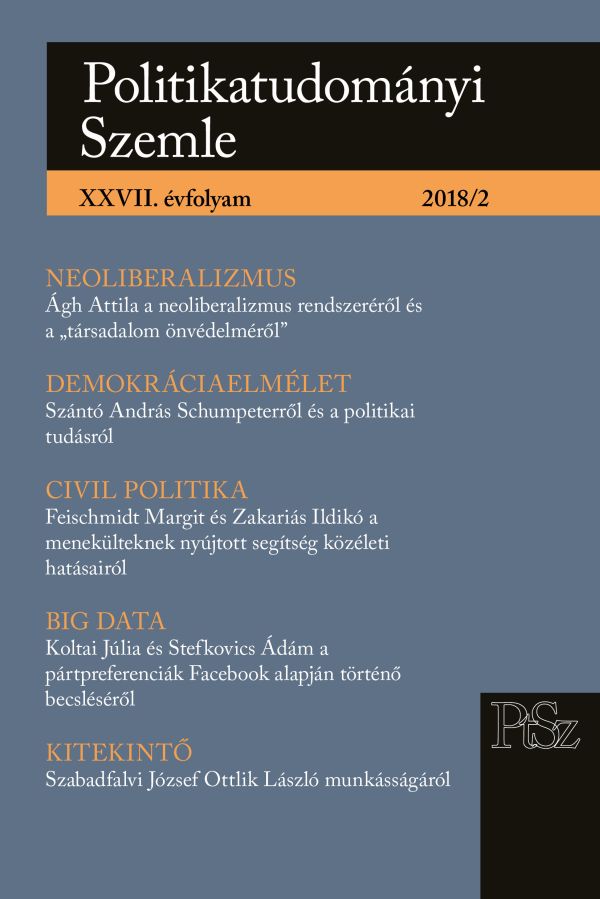A big data lehetséges szerepe a pártpreferencia-becslésekben magyarországi pártok és politikusok Facebook-oldalainak adatai alapján. Módszertani kísérlet
The possible role of big data in predicting party
preferences based on the Facebook pages of Hungarian political parties and politicians. A methodological experiment
Author(s): Júlia Anna Koltai, Ádám StefkovicsSubject(s): Politics / Political Sciences, Media studies, Politics and society, ICT Information and Communications Technologies
Published by: MTA Politikai Tudományi Intézete
Keywords: big data; measurement of party preference; election research; election prediction; Facebook
Summary/Abstract: Over the past few years, elections have shown worldwide that social media plays an increasingly important role in political life, both in politics and in the political activity of voters. Social media sites have become a new domain for the measurement of public opinion, offering many new opportunities. Discourses (such as tweets) and acts (such as likes) can form the basis for an election prediction. Compared to traditional prediction methods, big data-based research can be considerably cheaper and faster and can provide real-time tracking of public opinion. The aim of our paper is to gather international examples and showcase the success and failure of implementing them on Hungarian Facebook data and thus provide researchers with a basis for further investigations. In our analysis we examined whether there is a correlation between the number of likes that Hungarian parties and party leaders get on Facebook and the political poll results conducted in the same time period. The average number of likes per post proved to be the most appropriate indicator for party preferences, showing fairly good correlations in 7 of the measured 12 months. Beside this the indicator is quite volatile, and correlations differ between parties and party leaders.
Journal: Politikatudományi Szemle
- Issue Year: XXVII/2018
- Issue No: 2
- Page Range: 87-120
- Page Count: 34
- Language: Hungarian

